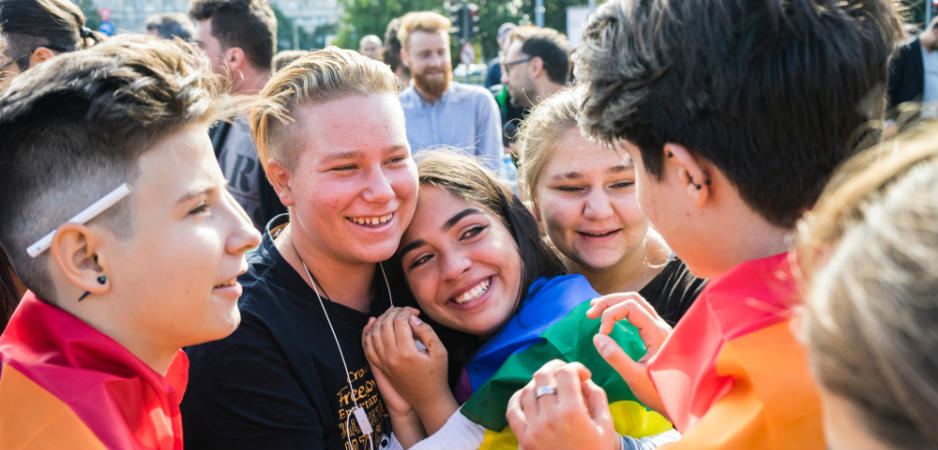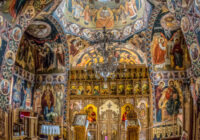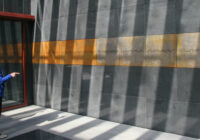Had the referendum passed, this would have made Romania the 15th European country to include a ban on same-sex marriage in its constitution — eighth in the EU.
It is easy to dismiss homophobia as a product of the alt-right, and to imagine that only extremists fear and hurt those who don’t conform to a heterosexual vision of relationships. But especially in Eastern Europe, homophobia comes from a wide variety of perspectives, and its power lies precisely in the inability of one political position to lay claim to it.
In October, Romania held a referendum asking voters whether they wanted to change the constitution to include the statement, “A family is established through marriage between a man and a woman, freely entered into by both parties and by the right and duty of the parents to insure the growth, education, and instruction of children.” Leaving aside the question of single-parent families (31.1% of Romanian children are born out of wedlock), childless families in a country where the birth rate has fallen rapidly over the past 10 years, and the relatively high number of instances of children marrying before their 18th birthdays, the purpose of the referendum was to prevent the marriage of same-sex couples. Amnesty International, the European Commission on Sexual Orientation Law and ILGA-Europe challenged the referendum in the constitutional court, claiming that the proposal violates human rights, but the challenge was overruled.
Had the referendum passed, this would have made Romania the 15th European country to include a ban on same-sex marriage in its constitution — and eighth in the European Union. Pre-referendum polls suggested that roughly 90% of voters were in favor of the change, but opponents boycotted the vote hoping that a low turnout would invalidate the referendum. In the end, just over 21% of eligible voters cast their ballots, well below the required 30% minimum turnout.
Why was it suddenly so important to prevent something that is already illegal? Romanian law forbids marriages between partners of the same sex, but supporters of the referendum argued that the civil code could be easily changed, whereas the constitution is harder to change. Even same-sex couples who legally married abroad have faced uphill legal battles to have their marriages recognized in Romania. Anthropologist Gerald W. Creed has argued that homophobia in neighboring Bulgaria is in many ways a reaction to Western European influences in the country. Bulgarians, he says, had traditionally not used the heterosexual/homosexual binaries common in the West, and use homophobia as a way of asserting Bulgarian masculinity or “normality.”
Neither rejecting Western ideas about sexuality nor directly assimilating them, European rhetoric becomes woven into Balkan realities in nuanced and unexpected ways. Thinking specifically about Romania, historian Shannon Woodcock has shown how in the mid-2000s, successive governments instrumentalized European human rights rhetoric to limit the expression of LGBTQ identities and to frame how and where discussions about sexuality could take place. European polls consistently show that the majority of Romanians support the EU, and the referendum was not a symptom of euroskepticism.
A gay novelist and bar owner says “we will suffer,” ahead of a referendum in Romania on banning same-sex marriage. He has received threats and hate messages after making a viral post about the vote on social media. pic.twitter.com/cODAk1POfA
— Radio Free Europe/Radio Liberty (@RFERL) October 5, 2018
A glance at the referendum’s supporters suggests three potential origins of the campaign. Homophobia has been a core focus of far right groups over the past 20 years. Since its formation in 2000, the neo-fascist Noua Dreaptă (New Right) have campaigned more heavily on this issue than any other. Each year the group stage a “March for Normality,” carrying signs portraying sexual acts between two men and chanting offensive slogans. The New Right vocally supported the referendum, but the group is too marginal, and its support base too limited, to have significantly influenced the result.
Sorin Grindeanu’s Social Democrat (PSD) government approved the referendum in May 2017, but it was repeatedly postponed until October this year. Despite obtaining a strong majority in the 2016 elections, the ruling PSD party faced strong opposition from street protesters angry about the government’s commitment to unraveling anti-corruption legislation for political gain. Commentators have suggested either that the government has used the referendum to distract voter attention away from the issue of corruption, or that it was intended as a plebiscite to demonstrate widespread support for the government. Maps detailing participation in the referendum suggest that apart from very low participation in Hungarian-speaking regions, voting patterns in 2018 had little in common with support for PSD in 2016. If the government hoped to bring its supporters to the voting booths, it failed.
Before arriving in Romania’s parliament, the idea for a referendum began as a citizen’s initiative from a group known as Coalition for the Family, which brought together 45 NGOs behind a common goal. The vast majority of these NGOs have a religious focus, including Orthodox, Catholic and Evangelical Protestant groups, alongside a number of organizations focusing on illnesses such as autism, Down syndrome and hemophilia. The group’s mission statement asserts that it exists “to defend those tendencies of modern society that diminish the importance of the family and accelerate its degradation.” Religious groups mobilized most heavily during the campaign, especially on social media, and maps of voter participation do show high engagement rates in areas with a strong Evangelical Protestant presence and/or engaged and conservative lay Orthodox groups.
Does the referendum signal a new coalition between the far right, the government and the religious community? Not really. It is likely that the unique intersection of national identity, religious concerns about moral degeneracy, and political expediency that surrounds LGBTQ issues produced the perfect storm that facilitated a referendum. Despite intensifying homophobic feelings and publicly labeling LGBTQ people as outsiders, the referendum demonstrated that whatever their feelings on the matter are, most people simply do not feel personally or corporately threatened enough by same-sex marriage that they are willing to vote on it.
*[The Centre for Analysis of the Radical Right is a partner institution of Fair Observer.]
The views expressed in this article are the author’s own and do not necessarily reflect Fair Observer’s editorial policy.
Support Fair Observer
We rely on your support for our independence, diversity and quality.
For more than 10 years, Fair Observer has been free, fair and independent. No billionaire owns us, no advertisers control us. We are a reader-supported nonprofit. Unlike many other publications, we keep our content free for readers regardless of where they live or whether they can afford to pay. We have no paywalls and no ads.
In the post-truth era of fake news, echo chambers and filter bubbles, we publish a plurality of perspectives from around the world. Anyone can publish with us, but everyone goes through a rigorous editorial process. So, you get fact-checked, well-reasoned content instead of noise.
We publish 2,500+ voices from 90+ countries. We also conduct education and training programs
on subjects ranging from digital media and journalism to writing and critical thinking. This
doesn’t come cheap. Servers, editors, trainers and web developers cost
money.
Please consider supporting us on a regular basis as a recurring donor or a
sustaining member.
Will you support FO’s journalism?
We rely on your support for our independence, diversity and quality.






